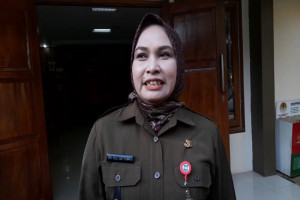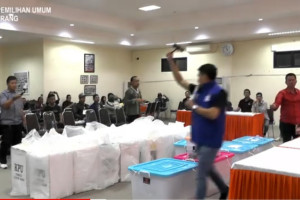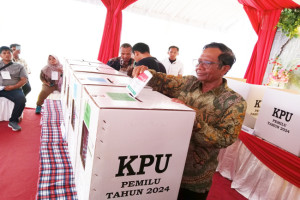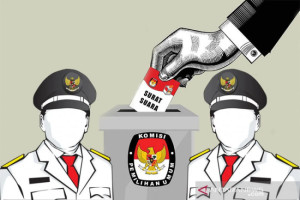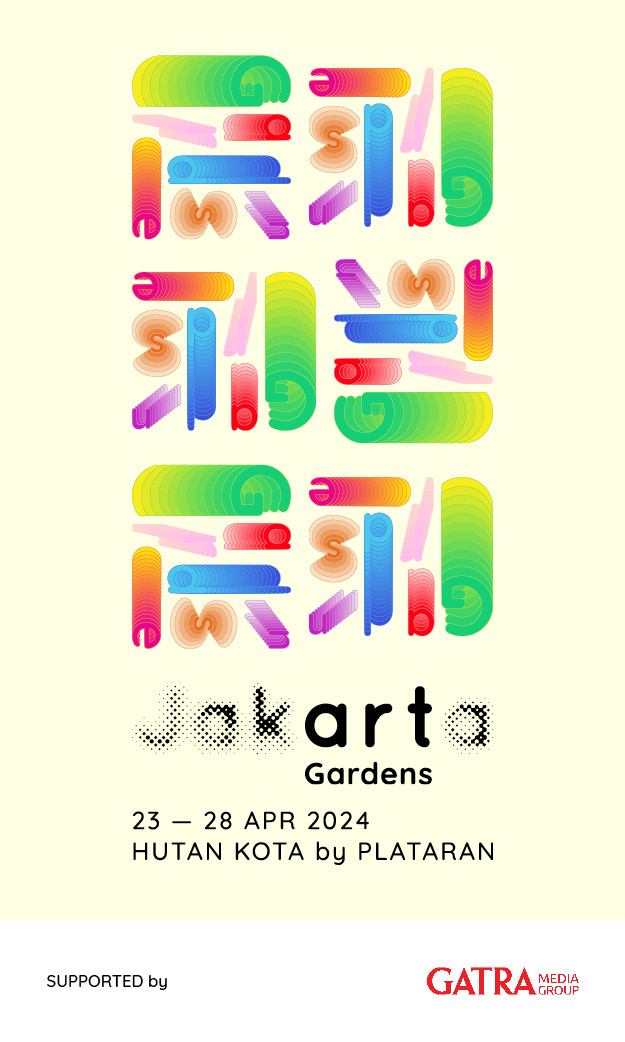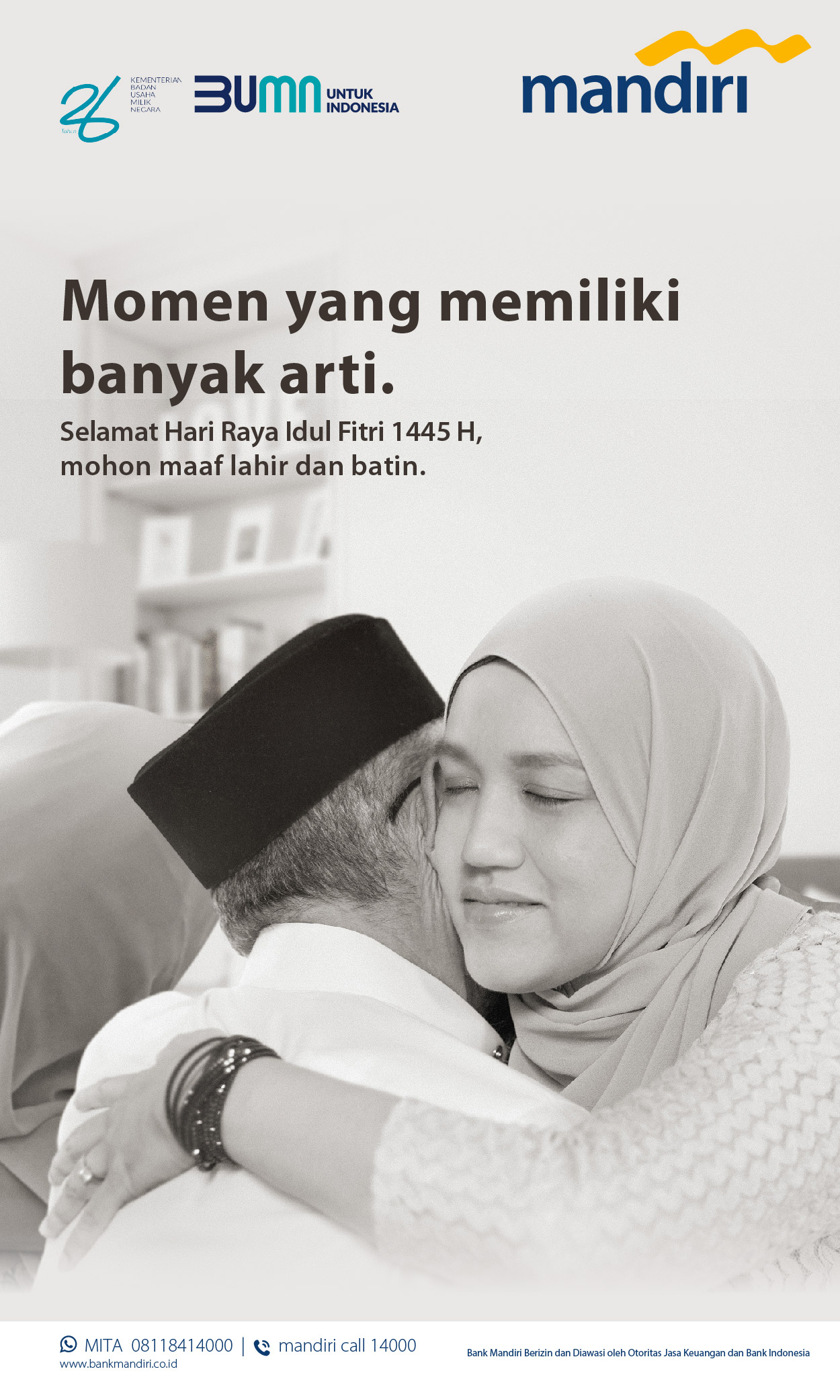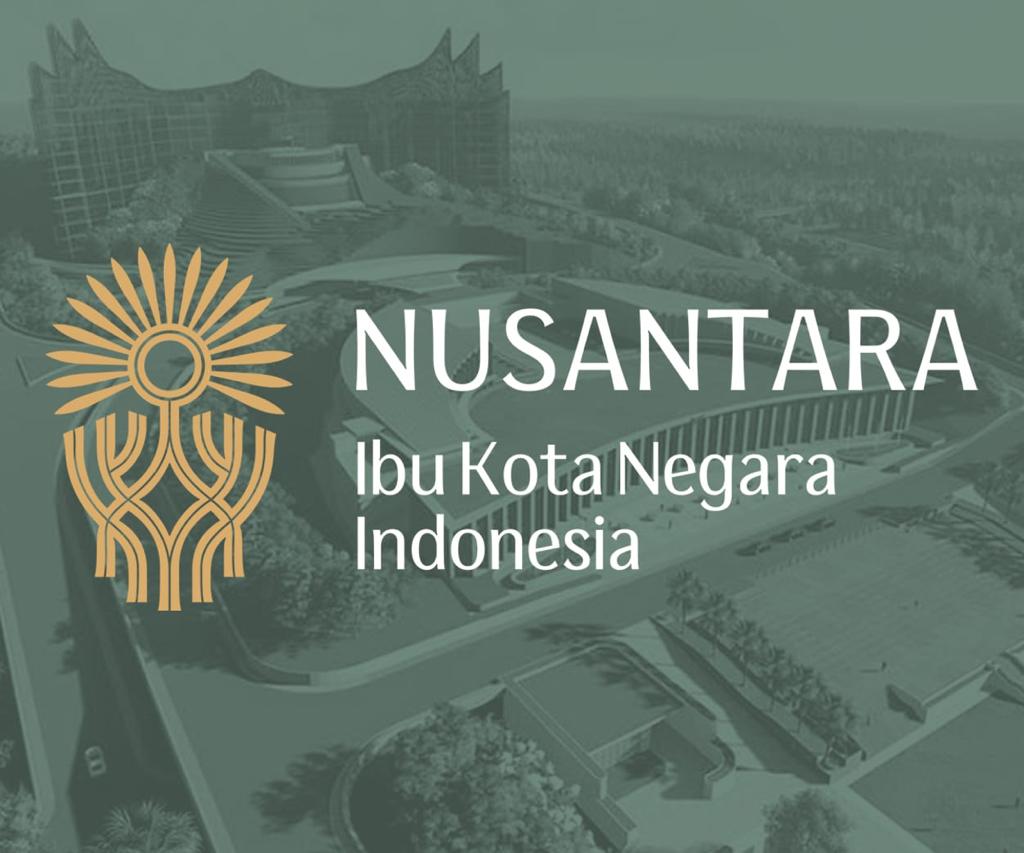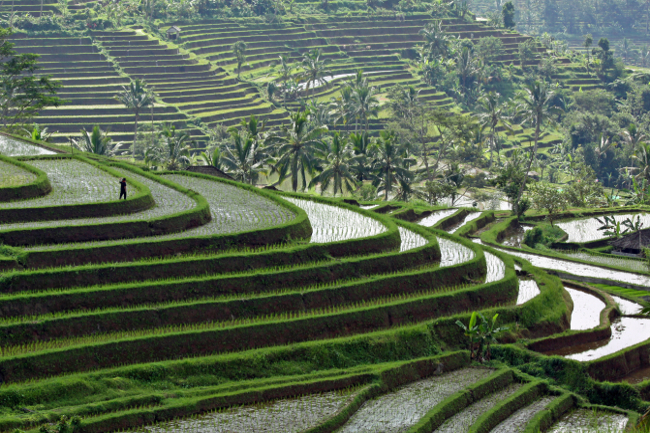
The govt has created a food self-sufficiency road map up until 2045. However, several food commodities are still imported. Would such road map guarantee autonomy in food sector or is it merely a grand gesture toward food security?
Jakarta, GATRAReview.com - How to say it, this country’s natural abundance does not equate with its public wealth. In fact, there has been a decline in farmers’ welfare. The general people find it difficult to get affordable basic needs. The market is flooded by imported foods, threatening the sustainability of local products. Meanwhile, foods are still monopolized by few, resulting in price spikes since everything is controlled by market mechanism.
Food has a paramount importance, as it concerns the life of general people, guaranteed by the 1945 Constitution which aims to improve the quality of human resources. Responding to such condition, the govt, via related ministries, has put much effort to realize policies on food for the people. In accordance to Act No. 18, 2012 on Food, the govt is responsible to evenly supply its people with affordable and good-quality foods.
In Indonesia, issues on food involve many policy makers from various ministries and governmental institutions. Among many, the Ministry of Agriculture, which role is in improving capacity in food production as well as the wealth of farmers. The Ministry of Trade creates policies on food supply and distribution, while Bulog (Indonesian Bureau of Logistics) controls food prices to stay affordable.
In the policy-making process, problems arose between governmental institutions. Take one example from the year 2018. By then, Head of Bulog Budi Waseso sharply criticized the steps by the Minister of Trade, Enggartiasto Lukita, who implemented imports even when food stocks were still sufficient in Bulog’s storage. More so with a claim by the Ministry of Agriculture that the year 2018 had seen rice surplus. However, the Ministry of Trade carried on of its import. By then, many were worried that the policy would defeat the price of rice by local farmers.
When there are problems within the government, the Coordinating Minister of Economics is expected to play a role in building bridges. According to an agricultural analyst, Khudori, the conflicts between food-related institutions had been inevitable since each had a different role. She instead suggested the establishment of a ministry of food as an institution focusing on the end-to-end management of food.
In fact, ‘the minister of food’ is not a new thing in Indonesia. In 1947, during the Amir Syarifuddin I cabinet, a State Minister on Food Affairs had been developed and Suja’as was named its first minister. Then, on the New Order government, during Kabinet Pembangunan IV (‘Development Kabinet IV’) of 1993, there had already existed a Junior Minister on Food Affairs taken by Ibrahim Hasan, which acted also as Head of Bulog.
Between Food Independence and Security
Currently, while there is an increase in rice harvest, imported rice, as well as other commodities like sugar and soybean, also amassed. This national inclination towards food imports gave rise to a question: have we been independent in terms of food?
Food independence can be defined as the rights of a nation to create its own food policy suitable to local resources. On such standing, the Head of People’s Consultative Assembly (MPR), Zulkilfli Hasan, had assessed that as long as we still import on food, this country will still be food-dependent. In other words, to be called independent, this country should suffice itself with local products, not depending on imported products.
Indonesian people might still remember, Indonesia was food-sufficient on rice during the New Order. Even on sugar, Indonesia had become an exporter. When being rice self-sufficient during the Soeharto era, national rice products had reached 27m tons, while people consumed only 25m tons. Yet, even when surplussed by 2m tons, Indonesia still imported for about 414,000 tons in a form of premium-quality rice tailored to the need of certain class in society.
Trade industry rarely sees imports and exports as sinister. According to Khudori, importing itself is an alternative for two conditions. Firstly, when commodity cannot be produced within a country. Secondly, when national product is still limited.
Nonetheless, Head of Food Security in the Ministry of Agriculture, Agung Hendriadi, said that recently Indonesia had reached a state of food security “Why so? Because we have produced our own rice, corn, garlic, chili, and poultry products. We managed to do that. The next would be red meat, onion and soybean. We will push on that, meaning that we are on the right track,” said Agung Hendriadi to Syah Deva Ammurabi from GATRA.
Daniel Johan, a parliamentary member of Commission IV, agreed with Agung’s statement on the government’s steps. Yet, he criticized the timing of such policy which was issued near the harvest season. “We imported even when we had massive production. It is not to ban imports; it shall only be done to give profit to Indonesia and farmers, the ones we need to protect. Don’t distort with other interests, if we’d like to secure Indonesia as a global food bowl,” said Daniel to Guruh Nuary from GATRA.
The Ministry of Agriculture itself, according to its minister Amran Sulaiman, had produced this country’s own rice and corn. The standard of self-sufficiency used by the ministry was a production capacity that reached 80% from national needs. Amran also mentioned about the surplus in national rice stock in 2019. Rice stock in Bulog storage had reached 2.2m tons, while corn supply, sufficed by importing up to 3.6m tons of it in the past, now had been met locally.
Now, does a capacity to self-suffice qualify for the state of food independence or is it merely an act to maintain food security? According to some analysts, both terms stand for different things.
Food independence shall be defined as “farmers’ independence toward food”, beginning from planting and seeding, production, trading, up to the end-customers. Philosophically, food independence relates to farmers’ welfare. So, food independence has more depth in meaning compared to food security.
The minister of agriculture Sulaiman stated that it had put an effort to improve the welfare of farmers. According to the Bone-born minister, farmers as the primary growers need to have security on pricing and decent margin of profit. He believed that by keeping up their welfare, Indonesia would no longer need to import food.
Head of Public Communications of the Ministry of Agriculture, Kuntoro Boga Andri, said that the ministry-wide effort to improve agricultural production had created direct results on the increase of trade value, especially on strategic agricultural products. It was evident in a note by Statistics Indonesia (BPS).
The data shows a surplus of US$10bn in the 2018’s trade balance of Indonesian agricultural products. Besides that, export value of the same year increased by US$29bn from import value in 2017, which was only US$19bn.
How should we assess our national food security from an international perspective? A common reference includes the survey of food security index by Global Food Security Index (GFSI), a joint collaboration between The Economist and food tech company Corteva. The published data shows that Indonesia’s food security has increased since 2012. Its score in all aspects in 2012 was 46.8 and had increased to 54.8 in 2018 (out of a maximum 100). In a survey in October 2018, Indonesia sit in the 65th position globally, and 5th in ASEAN, out of 113 countries.
In a meeting between the parliament’s Commission IV and the Ministry of Agriculture in June 2019, Head of Commission IV, Edhy Prabowo, stated that the ministry’s achievement deserved appreciation. However, for the still-imported commodities, the Gerindra politician said that the Ministry of Finance needed to put budget priority to the Ministry of Agriculture. Also reported during the meeting, the Rp21tn fund for the ministry in 2019 had only been spent Rp4.65tn or about 21% from the budget limit. The Commission IV, as a result, asked for programs by the ministry to improve spending in the State Budget (APBN).
Meskipun demikian, banyak pihak yang berharap, capaian ini tidak berhenti sampai di sini. Daniel Johan, misalnya, menyatakan seharusnya Indonesia bisa masuk dalam peringkat ke-10 dunia, karena kekayaan alam yang melimpah. Sedangkan Koordinator Koalisi Rakyat untuk Kedaulatan Pangan (KRKP), Said Abdullah, menilai pengalaman Singapura menangani masalah pangan juga dapat dijadikan sebagai contoh.
However, many hoped that this achievement could last longer. For instance, Daniel Johan said that Indonesia should have been able to enter the global top 10 because of its abundant natural resources. Meanwhile, the coordinator of People’s Coalition for Food Independence (KRKP), Said Abdullah, mentioned that we could take a lesson from Singapore’s experience in handling food problems.
As a country with less natural resources, Singapore depended largely on the import of food. “But Singapore had had stronger access to food. Its food availability was high since it could import expensive foods to suffice its people. It also maintained an outstanding safety level,” said Said Abdullah to M. Guruh Nuary from GATRA Review.
To Become the World’s Food Bowl in 2045
To achieve the Indonesian dream of becoming the world’s food bowl in 2045 is not an easy feat. As a requirement, Indonesia should have achieved its state of being food-independent. The govt has defined this term as “a state’s ability to produce various foods locally, which is able to guarantee food supplies down to individual level through the decent uses of natural, human, social, and economic resources, as well as local wisdom.”
Toward that dream, the Ministry of Agriculture has made a road map of food self-sufficiency for 2016-2045 as a reference for production improvement and to stop imports on foods. Minister Amran Sulaiman believed that Indonesia would be able to be a global food producer in 2045 consistent with the national road map.
“To achieve the goals, we can do two things. Those are to stop imports on products that are already produced within the country and to tighten the imports of products currently unsatisfied by national production,” said he.
With the road map, the govt targeted a self-sufficiency of soybean and household sugar in 2019, followed by industrial sugar in 2025. National production of red meat and garlic is also targeted to self-suffice for 2026 and 2033, respectively. In 2045, the pinnacle of it would be making Indonesia the world’s food bowl.
In the road map, the Ministry of Agriculture focuses on the food provision by way of the National Priority in 2020, targeting the production of an 85.84m tons of rice, 33.96m tons of corn, 1.12m tons of soybean, 1.5m tons of onion, 2.5m tons of chili and 0.82m red meat. It will be followed by increases in plantation sub-sectors like cane, coconut, rubber, coffee and many more.
So far, the Ministry of Agriculture claimed that Indonesia had been sufficient for several food products. “It is evident when certain commodities not only achieve a status of self-sufficient, but also are being exported. We do exports on corn, poultry products, lamb, goat and onion. We secure our rice stock. In the future, perhaps two years from now, we will do exports on garlic,” said Amran.
The minister of agriculture also opened up the data in 2013, in which 33.5m tons of agricultural export in 2018 had grew into 42.5m tons, a growth by 9m tons. According to the minister, during the 4 years, the average growth was 2.25m tons per year. Sulaiman also mentioned that national rice stock saw a surplus in 2019. It was because Bulog’s storage had a rice stock of 2.2m tons and enough quantity of corn stock, which needed imports of 3.6m tons in the past.
“I’m optimistic that Indonesia has the resources to do that. Yet, its realization needs common understanding by all stakeholder in food and agriculture sectors,” said Khudori, who once was a member in Task Force in Food Security. According to her, without mutual understanding between the stakeholders, the domestic market would still be bombarded by cheap imported foods, which in turn would bury deep the dream of the ministry.
Dudun Parwanto
Translator: Gabriel Mahendra



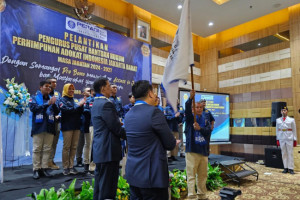
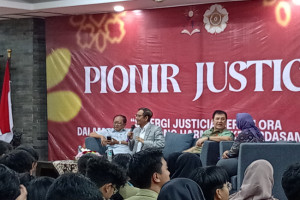
_thumb.jpg)

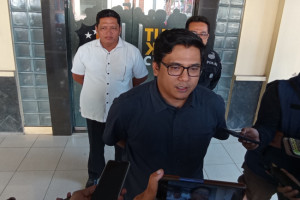
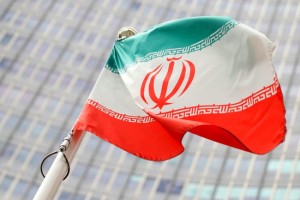
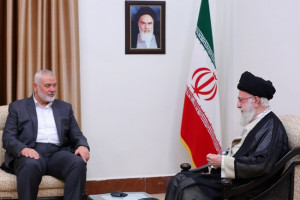
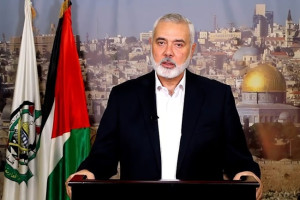
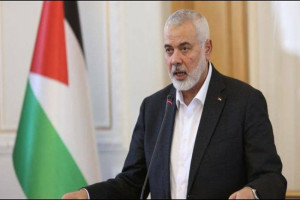

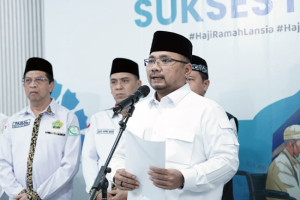
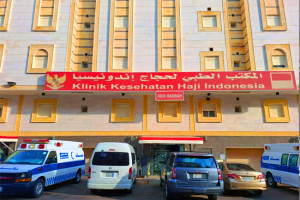
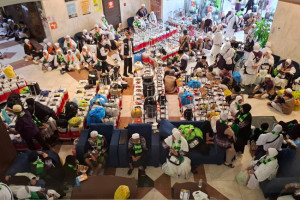
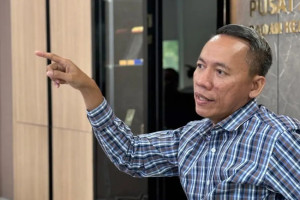
_(1)_11zon1_thumb.jpg)
